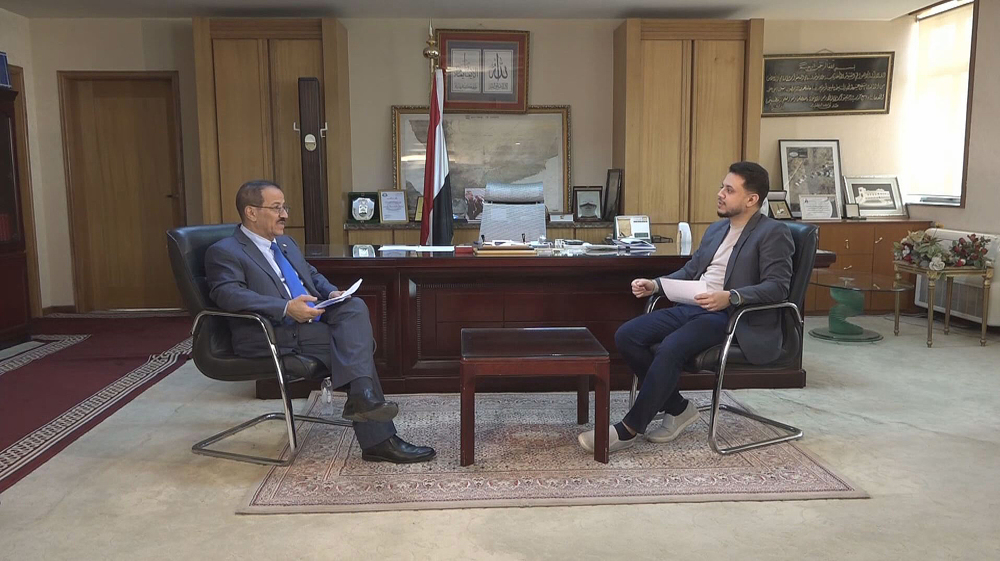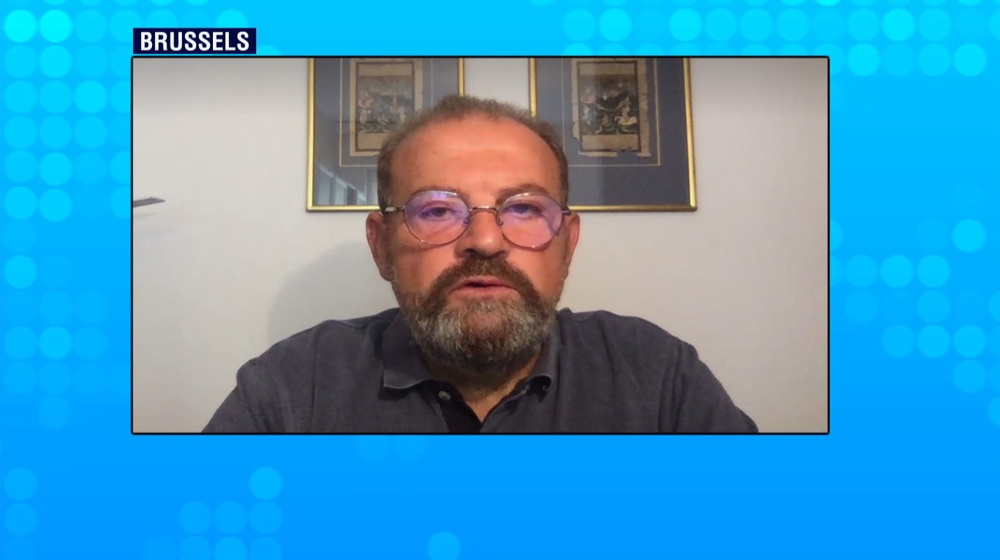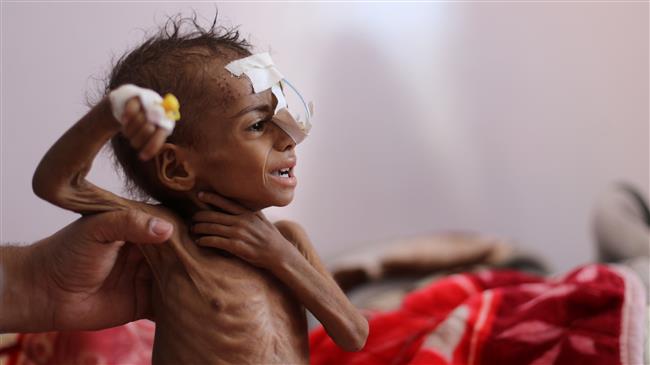Saudi Arabia has lost lots of money in Yemen war: Analyst
Press TV has conducted an interview with Edward Corrigan, a human rights attorney, to discuss a report by the United Nations Children’s Fund (UNICEF) on the humanitarian impacts of Saudi Arabia’s deadly war on Yemen.
The following is a rough transcription of the interview.
Press TV: Over the course of this year, as far as Saudi Arabia’s bombardment of Yemen goes, different rights organizations have also pointed out the deaths of civilians, the targeting of civilian infrastructure and even evidence of use of cluster ammunitions as Saudi Arabia committing war crimes in Yemen. Why is it that it has been a year since this aggression has begun, yet we are not seeing any urgency being given to hold Saudi Arabia accountable for its atrocities?
Corrigan: Well, certainly, Human Rights Watch, Amnesty International, other organizations, even the United Nations have been sharply critical of the Saudi attack on Yemen, use of illegal cluster bombs, attacking mosques, schools, hospitals and other infrastructures.
It clearly is an attack on the people of Yemen and I think part of the answer is that everything has been foreshadowed by the conflict in Syria, so, this is not given the same sort of priority, and of course Saudi Arabia is an autocratic authoritarian regime but it does have its friends in the West, with the United States and Britain in particular.
So, people are still selling arms to Saudi Arabia. There has been some pressure put on… The Dutch parliament for example has now stopped selling arms to Saudi Arabia because [of]… human rights violations and use of arms for illegal purposes, and the UN is instigating a major report.
I think the UN report from UNICEF clearly paints so much darker a picture of the situation in Yemen than what previously has been acknowledged or recognized and that there is… I guest… hopefully the peace agreement that is going to hopefully take place and the cessation of hostilities and implemented in peace talk in April 18th is going to help to resolve the issue.
But this is not just a Shia or Houthi conflict with Saudi Arabia. There was a previous regime of Saleh, who just had massive demonstrations of support in the capital city of Sana’a. He was the previous regime that was pushed out by Hadi, and now you have this ongoing conflict with the Houthis from northern Yemen that is the fourth major conflict they have had with the government over the last number of years.
So, it is more complicated. Saudi Arabia tries to portray this as a Shia-Sunni conflict but that is not accurate.
It is also a question of Yemen trying to be an independent country, not being under direct control of Saudi Arabia; that is why the Saudis are attacking the infrastructure.
Hopefully, the UN and other organizations and I hope that world court would step in and deal with Saudi Arabia’s war crimes because this… is an attack on a civilian population, there is a siege of a country, preventing food, medicine and other necessary supplies from getting in and this is having a devastating impact on the children of Yemen, including affecting their mental abilities that is going to create all sorts of development issues, and we are seeing thousands of kids… people being killed and over a thousand children being killed and those are probably not even… those are underestimates because of the bombing and fighting… I suspect the real numbers are much higher.
Press TV: As you have just mentioned, these estimates that we are getting are probably… towards a lower end. However, what needs to change for there to be a more concerted effort on the part of the international community to bring Saudi Arabia to halt this aggression? Because let’s not forget, despite UN’s condemnations or warnings, it has not unequivocally called for halt to the aggression.
Corrigan: Obviously, the people of Yemen have fought very hard to maintain their independence. The Houthi rebels are fighting hard… and Saudi Arabia cannot deliver a knock-out punch and there are regular Yemeni army units that are loyal to Saleh that are still fighting in alliance with the Houthi rebels.
I think the people have to realize that the provinces in southern Yemen where the Houthis and other allies were pushed out of there… but that is a different area; They want independence. There is different factors in Aden that saw the expulsion of the forces from the north; but I don’t think that is a clear allegiance to Hadi’s regime or of course support for the Saudis, the people of southern Yemen have been very very independent.
But the degree and the tenacity of the people defending Yemen and the failure of the Saudis to be successful in their attack, I think, is now driving the point home at least for the Saudis that this is not working.
Blackwater has withdrawn its troops. There have been significant casualties on the part of Saudi forces and their allies. They’ve hired a bunch of mercenary and stuff. And Saudi Arabia, even though they have a total dominance of the sky, have failed to defeat the Houthis. And if anything, this is a stalemate that is costing Saudi Arabia a great deal in terms of manpower and billions of dollars and money and they are losing and they are spending money like it is going out of style. I think they just don’t have the resources that they had before with the price of oil… So, this is putting pressure on Saudi Arabia.
I really don’t see the Americans or the British or the UN putting significant pressure on Saudi Arabia to stop its war of aggression; but I think the people in Yemen have stood up and now we’re hopefully going to have serious peace talks and come to some sort of a peaceful arrangement between the various parties but this is not simply a Shia-Sunni conflict...

Exclusive: Attacks on Israel-bound ships in Red Sea ‘a pure Yemeni decision’

Journalist: US must take first step to revive Iran deal

UN Security Council contributed to Yemen conflict: Commentator
VIDEO | Footage reveals aid workers killed in Gaza under Israeli fire, debunking regime’s claims
Autopsy finds teenage Palestinian died of starvation in Israeli prison
Year of Investment in Production in Iran
Israel’s brutality in Gaza ‘surpasses all recent forms of terrorism’: Rights group
VIDEO | Press TV's News Headlines
Myanmar quake death toll passes 3,300: State media
US spent $1 billion on Yemen offensive with limited results: Report
Microsoft employees disrupt 50th anniversary event over AI-assisted Gaza genocide






 This makes it easy to access the Press TV website
This makes it easy to access the Press TV website